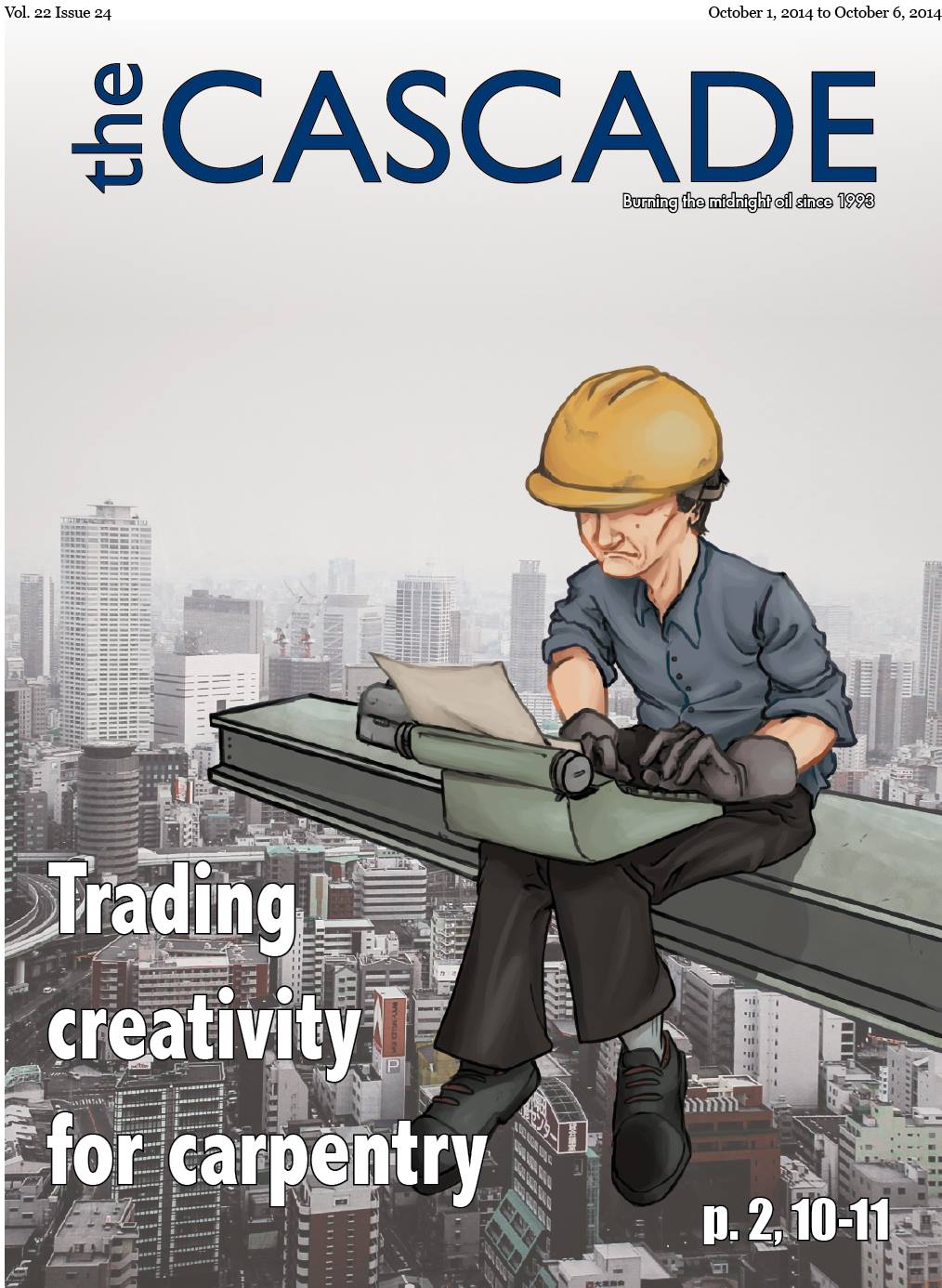Print Edition: October 29, 2014
I wish to enter into the discussion regarding prior editorials in The Cascade. I do so with trepidation because I do not think that it is proper for faculty to comment on a student publication in a manner that makes it seem as if we are sitting in judgment of it. My intent therefore is to offer support for the editors of The Cascade, and encourage them to continue to explore and comment on issues that are of relevance to students at this institution.
However, there appears to be confusion surrounding the original editorial written by Katie Stobbart. As I see it, her article points out that government’s alteration of its funding formula may distort or upset existing understandings of education, especially in regard to the liberal arts. The contrast with trades she provides is apt to the extent that the government desires a model of job training most likely to be assigned to the trades. The reference to ‘creativity’ that informs her commentary is meant to show that this model makes little room for what some might see as an aspect definitive of the liberal arts. Such a claim is not equivalent to asserting that the trades are devoid of creativity nor does it entail that the arts have a monopoly on creativity. Rather, her position implies that education construed strictly as the preparing of students for industry specific occupations has little room for basic conceptions of creativity. If the government’s plan requires reassigning resources based on its narrow construal of education, then the anxieties voiced by the editor of The Cascade seem warranted. In the process, she may not have given the trades their due, but one could suggest that the government has an even more limited grasp of the potential for education in the trades.
In the end, even though we may not all be familiar with the nature and origins of the liberal arts or with the fundamentals of the trades, we should not be taken to task for commenting on the potential significance of major changes in budgetary priorities.
Glen Baier
Department of Philosophy

